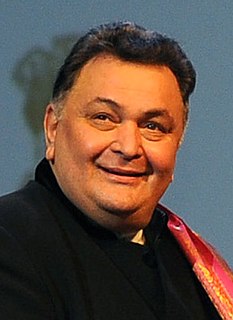A Quote by Jean-Baptiste Say
The property a man has in his own industry, is violated, whenever he is forbidden the free exercise of his faculties or talents, except insomuch as they would interfere with the rights of third parties.
Related Quotes
In the latter sense, a man has a property in his opinions and the free communication of them. He has a property of peculiar value in his religious opinions, and in the profession and practice dictated by them. He has an equal property in the free use of his faculties and free choice of the objects on which to employ them. In a word, as a man is said to have a right to his property, he may be equally said to have a property in his rights.
The only proper, moral purpose of a government is to protect man's rights, which means: to protect him from physical violence - to protect his right to his own life, to his own liberty, to his own property and to the pursuit of his own happiness. Without property rights, no other rights are possible.
The right to life is the source of all rights -- and the right to property is their only implementation. Without property rights, no other rights are possible. Since man has to sustain his life by his own effort, the man who has no right to the product of his effort has no means to sustain his life. The man who produces while others dispose of his product, is a slave.
It is not the right of property which is protected, but the right to property. Property, per se, has no rights; but the individual - the man - has three great rights, equally sacred from arbitrary interference: the right to his life, the right to his liberty, the right to his property The three rights are so bound together as to be essentially one right. To give a man his life but to deny him his liberty, is to take from him all that makes his life worth living. To give him his liberty but take from him the property which is the fruit and badge of his liberty is to still leave him a slave.
The diversity in the faculties of men, from which the rights of property originate, is not less an insuperable obstacle to a uniformity of interests. The protection of these faculties is the first object of government. From the protection of different and unequal faculties of acquiring property, the possession of different degrees and kinds of property immediately results; and from the influence of these on the sentiments and views of the respective proprietors, ensues a division of the society into different interests and parties.
To take from one because it is thought that his own industry and that of his father's has acquired too much, in order to spare to others, who, or whose fathers have not exercised equal industry and skill, is to violate arbitrarily the first principle of association-the guarantee to every one of a free exercise of his industry and the fruits acquired by it.
We hear in these days a great deal respecting rights--the rights of private judgment, the rights of labor, the rights of property, and the rights of man. Rights are grand things, divine things in this world of God's; but the way in which we expound these rights, alas! seems to me to be the very incarnation of selfishness. I can see nothing very noble in a man who is forever going about calling for his own rights. Alas! alas! for the man who feels nothing more grand in this wondrous, divine world than his own rights.
It is evident that the right of acquiring and possessing property, and having it protected, is one of the natural, inherent, and unalienable rights of man. Men have a sense of property: Property is necessary to their subsistence, and correspondent to their natural wants and desires; its security was one of the objects, that induced them to unite in society. No man would become a member of a community, in which he could not enjoy the fruits of his honest labour and industry.
As property, honestly obtained, is best secured by an equality of rights, so ill-gotten property depends for protection on a monopoly of rights. He who has robbed another of his property, will next endeavor to disarm him of his rights, to secure that property; for when the robber becomes the legislator he believes himself secure.
By Liberty I understand the Power which every Man has over his own Actions, and his Right to enjoy the Fruits of his Labour, Art, and Industry, as far as by it he hurts not the Society, or any Members of it, by taking from any Member, or by hindering him from enjoying what he himself enjoys. The Fruits of a Man's honest Industry are the just Rewards of it, ascertained to him by natural and eternal Equity, as is his Title to use them in the Manner which he thinks fit: And thus, with the above Limitations, every Man is sole Lord and Arbitrer of his own private Actions and Property.

































